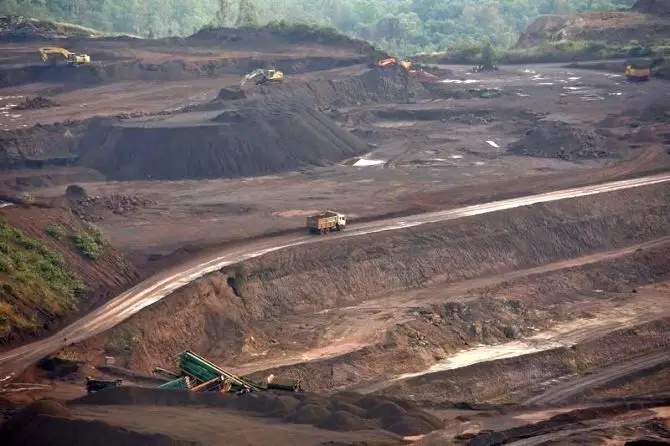
Vedanta Chairman’s Warning: Iron Ore Industry in Danger?
Vedanta chairman Anil Agarwal recently claimed that India’s iron ore industry is “dying” due to high auction premiums and operational delays. His viral post sparked a heated debate about the industry’s future. The Union Ministry of Mines dismissed these claims as “misleading,” but the exchange raised deeper concerns for investors, mining companies, and the economy. The big question: can the industry survive, and what does it mean for the stock market?
What’s the Issue?
Mining auctions were introduced for transparency and to create opportunities. However, with fewer mining blocks available and large corporations bidding aggressively, smaller companies are finding it hard to stay profitable. Iron ore auction premiums have skyrocketed, averaging 119%, making it nearly impossible for smaller players to compete.
The Rise of Auction Premiums
Since the auction system started, premiums have risen sharply. In 2016, the average premium was 86%, but by 2023, it hit 171%. Although these premiums don’t come directly from company revenue, the pressure on smaller, non-integrated mining companies is immense.
Mining Blocks: Short Supply or Growing Demand?
Many iron ore companies claim a shortage of mining blocks, but the Ministry of Mines argues otherwise. Currently, 17 blocks are up for auction, and 60 more are with state governments for auctioning. Between 2020 and 2023, 97 iron ore blocks were auctioned, compared to just 24 blocks from 2012-2016.
The Impact of High Auction Premiums
Large steel companies with their own mines can handle higher premiums because they offset the costs through production. Smaller companies, however, that only focus on mining or exporting, are under immense financial strain.
In FY24, India exported 46 million tonnes of iron ore, becoming the fourth-largest producer globally. But smaller companies without captive mines are feeling the squeeze, finding it harder to stay in the game.
How It Affects Your Everyday Life
The struggles in the iron ore industry hit closer to home than you think. Rising auction premiums lead to higher prices for cars, appliances, and even building materials, impacting your wallet. If smaller mining companies shut down, it could lead to job losses in mining-dependent regions, affecting families and communities.
Impact on the Share Market
The struggles of the iron ore industry can also affect the stock market. Shrinking profit margins from high premiums can lead to a drop in stock prices for large mining companies. This volatility can create uncertainty for investors in mining stocks. When company revenues are squeezed, market performance suffers, leaving shareholders anxious.
You may also like reading: Top Mutual Funds to Invest in October 2024 | New NFOs for High Returns
What’s the Solution?
Experts believe that offering more mining blocks could ease competition and reduce premiums. This would give smaller companies a better chance to compete and access resources without being outbid by bigger players.
Despite the challenges, India’s iron ore production has doubled in the last decade. In FY24, the country produced 274 million tonnes of iron ore and 144 million tonnes of steel, showing the industry’s resilience. Increasing mining opportunities could be the key to a balanced future for both large and small players.
Also read: Why the Indian Stock Market Fell Today: 3 Major Reasons